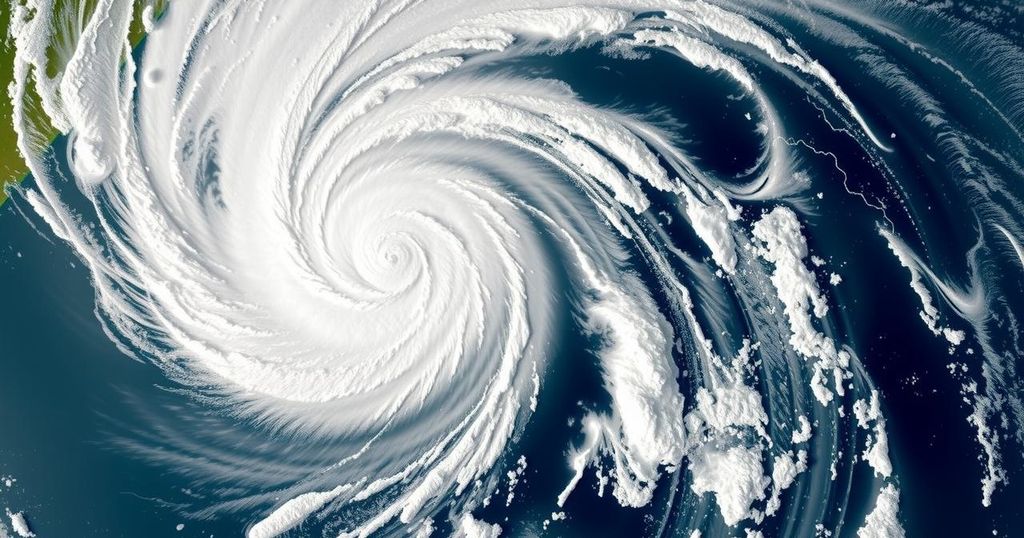World news
AFRICA, CENTRAL EMERGENCY RESPONSE FUND, CHI, CLIMATE CHANGE, DISASTER MANAGEMENT, ERATI, FLOODING, HUMANITARIAN AND EMERGENCY OPERATIONS CENTRE, MOZAMBIQUE, NAMPUL, NAMUNO, NATURAL DISASTER, NATURAL DISASTERS, NIASSA PROVINCE, PEMBA, SADC, SHOC, SOUTHERN AFRICAN DEVELOPMENT COMMUNITY, TOM FLETCHER
Stella Nguyen
0 Comments
Tropical Cyclone Chido: Update on Impact in Mozambique and Malawi
Tropical Cyclone Chido has caused severe weather conditions in Mozambique and Malawi, affecting thousands. Landfall occurred on December 15, with strong winds and heavy rainfall resulting in fatalities and extensive damage. The Emergency Relief Coordinator has allocated $4 million for immediate assistance as local and international bodies assess the situation amidst communication disruptions. Expectations of significant rainfall extend to several surrounding nations, heightening the risk of flooding.
On December 15, 2024, Tropical Cyclone Chido made landfall in Mozambique and is currently impacting Malawi with severe winds and heavy rain, affecting thousands of individuals. As of December 16, the storm is expected to dissipate by December 17 near Zimbabwe. The Emergency Relief Coordinator, Tom Fletcher, has allocated $4 million from the Central Emergency Response Fund for immediate relief efforts in Mozambique, as the government and humanitarian partners assess the damage amidst disruptions in communication and access due to blocked roads.
The cyclone has already resulted in at least one fatality, 35 injuries, and has affected over 24,000 people across 4,835 families, with more than 5,800 homes destroyed and significant damage to education and power infrastructure. The preliminary assessments indicate that approximately 160,000 individuals in Cabo Delgado require assistance, with about 150,000 in Pemba being particularly vulnerable. The most severely impacted area appears to be Mecufi, hindered by access issues. Sustained rainfall and strong winds are expected to continue affecting Cabo Delgado and Niassa provinces.
The cyclone continues its path from Mozambique into Malawi, where initial reports indicate that around 1,800 households have been affected, particularly in Machinga, Phalombe, and Blantyre rural district, where two additional fatalities were reported. Infrastructure including schools and health facilities has also sustained damage. Heavy rainfall, exceeding 150 mm over ten days, is anticipated across northern Mozambique, Malawi, Zimbabwe, and Zambia, with risks of flash flooding and mudslides in various regions.
Chido developed from a tropical depression on December 7, intensified to Category 4, and then fluctuated to Category 3 before making landfall. It has travelled close to numerous islands in the Comoros before reaching the mainland, affecting various regions with incredible rainfall and destructive winds.
Tropical Cyclone Chido represents a significant environmental and humanitarian crisis affecting Southern Africa, specifically Mozambique and Malawi. Cyclones of this nature typically bring about dangerous weather conditions, including high winds, heavy rainfall, and flooding, which can result in substantial loss of life and property. Understanding the broader implications of such natural disasters is essential for coordinating effective disaster response and mitigating further impact on vulnerable populations. International assistance, including humanitarian aid from organizations like the UN, plays a crucial role in responding to immediate needs following such events. The residents in the impacted areas rely on timely government updates and weather forecasts to navigate these challenges safely.
In conclusion, Tropical Cyclone Chido has inflicted considerable hardship on communities in Mozambique and Malawi, leading to casualties, injuries, and widespread infrastructural damage. The allocation of emergency funds signifies the urgent need for humanitarian assistance in these regions as recovery efforts are initiated. Continuous monitoring and swift emergency response are critical to mitigating the impacts of the cyclone and supporting the affected populations through effective disaster management strategies.
Original Source: reliefweb.int




Post Comment